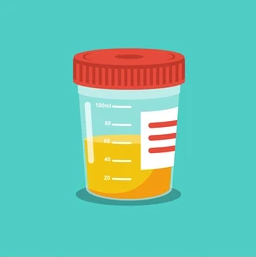Understanding how long a medication stays in your system is crucial, especially when it comes to drugs like Lyrica. Whether you’re managing chronic pain, epilepsy, or anxiety, knowing the duration of Lyrica in your body can help you manage your treatment plan more effectively. In this article, we’ll dive into the specifics of Lyrica, including its duration in the system, factors that influence its metabolism, and much more.
➥Lyrica: What Is It?
Pregabalin, often known as Lyrica, is a prescription drug that is frequently used to treat seizures and persistent nerve pain. Conversely, Lyrica is a medication that may be used to treat fibromyalgia and diabetic neuropathy.
Lyrica is prescribed by doctors to treat chronic pain disorders, nerve discomfort, and other physical symptoms. Although doctors frequently prescribe Lyrica, which is categorized as a medication that is generally safe to take while under medical supervision, Understanding the potential hazards, adverse reactions, and variables influencing the medication’s half-life is essential. Different tests that vary in how long they take to discover Lyrica after usage can identify the drug in the body.
➥How Lyrica Works
Lyrica binds to calcium channels on nerve cells in the brain and spinal cord, reducing the release of neurotransmitters involved in pain and seizure generation. By doing so, it helps alleviate pain and prevent seizures, providing relief for many patients suffering from these conditions.
➥Half-Life of Lyrica
The half-life of a medication refers to the time it takes for half of the drug to be eliminated from the body. For Lyrica (Pregabalin 75mg), the half-life can vary depending on factors like age, liver function, and dosage.
Generally, the average half-life of Lyrica ranges from 5 to 6 hours in most people. This means that every 5 to 6 hours, half of the amount of Lyrica 300mg originally ingested is eliminated from the body through metabolism and excretion.
➣Factors Influencing Half-Life
Several factors can influence how quickly Lyrica is processed by the body, affecting its half-life:
- Liver function: Since Lyrica is primarily metabolized by the liver, any liver impairment can prolong its half-life.
- Age: Older individuals may metabolize Lyrica more slowly than younger adults, leading to a longer half-life.
- Kidney function: While Lyrica is mostly metabolized by the liver, the kidneys also play a role in eliminating the drug from the body. Impaired kidney function can affect how long Lyrica stays in the system.
- Dosage: Higher doses of Lyrica may result in a longer half-life compared to lower doses.
➣Practical Implications
Understanding the half-life of Lyrica is important for both patients and healthcare providers. It helps in determining dosing schedules and managing potential side effects. For instance, medications with shorter half-lives may need to be taken more frequently to maintain therapeutic levels in the bloodstream.
➣How Much Time Does Lyrica Remain in Urine?

Urine tests are another common method for detecting drugs. Lyrica can be detected in your urine for up to 5 to 6 days after your last dose. This longer detection period is because your kidneys filter out the drug over time, which is then expelled through urine.
➣What Is the Length of Lyrica’s Stay in Hair?

Hair tests have the longest detection window of all. Lyrica can be detected in your hair for up to 90 days after your last dose. This is because as your hair grows, it traps a record of substances your body has processed, acting like a long-term archive.
➣What Is the Length of Lyrica’s Blood Stay?

Blood tests are quite precise when it comes to detecting medications. Lyrica can be found in your blood for up to 48 hours after your last dose. This window is relatively short, so if you’re undergoing a blood test, Lyrica won’t hang around for too long.
➣How much time does Lyrica remain in your mouth?

Lyrica typically remains in your mouth for just a few moments after you swallow it. Once you’ve taken the pill, it quickly travels down your throat and into your stomach for absorption. Unlike some medications that may linger on the tongue or in the mouth, Lyrica doesn’t stay there for an extended period. If you’re concerned about how to take Lyrica properly, it’s always a good idea to follow your healthcare provider’s instructions for the best results.
➥Factors Influencing Lyrica’s Duration in Your System
If you’re taking Lyrica (Pregabalin 50mg) for nerve pain, fibromyalgia, or seizures, it’s important to understand what influences how long the medication remains in your body. Several factors can affect the duration of Lyrica’s presence in your system:
➣Dosage and Frequency of Use
The amount of Lyrica you take and how often you take it can significantly impact how long it stays in your system. Higher doses and more frequent use can extend the duration of time Lyrica is detectable.
➣Metabolic Rate
Your metabolic rate plays a crucial role in how quickly Lyrica is metabolized and eliminated from your body. People with faster metabolisms tend to process medications more quickly, reducing the duration of time Lyrica remains in their system.
➣Liver Function
Lyrica is primarily metabolized by the liver. If you have liver disease or impairment, your body may metabolize Lyrica more slowly, prolonging its duration in your system.
➣Kidney Function
While the liver metabolizes Lyrica, the kidneys are responsible for eliminating the drug and its by-products from the body. Impaired kidney function can lead to a buildup of Lyrica, extending its duration in your system.
➣Age and Health Status
Age and overall health can influence how efficiently your body processes medications like Lyrica. Younger individuals and those in good health may metabolize Lyrica more quickly than older adults or individuals with health complications.
➣Individual Variations
Each person’s body is unique, and factors such as genetics and other medications being taken concurrently can impact how long Lyrica stays in your system.
➥Overdosing on Lyrica and Withdrawal
Overdosing on Lyrica 75mg and what happens when you suddenly stop taking it. Whether you’re prescribed Lyrica for nerve pain, fibromyalgia, or seizures, it’s crucial to understand the risks and how to handle them.
➣Symptoms of a Lyrica Overdose
Accidentally taking too much Lyrica 150mg can have serious consequences. Symptoms of an overdose may include:
- Drowsiness and dizziness: You might feel excessively sleepy or lightheaded.
- Blurred vision: Your vision may become blurry or impaired.
- Difficulty breathing: This is a serious symptom and requires immediate medical attention.
- Unresponsiveness: In severe cases, overdose can lead to loss of consciousness or coma.
If you suspect someone has overdosed on Lyrica or if you yourself are experiencing these symptoms after taking more than your prescribed dose, seek emergency medical help immediately. Don’t wait—it could save a life.
➣Withdrawal of Lyrica
There are many different Lyrica withdrawal symptoms, which can include any or all of the following:
- Thoughts of suicide
- Mood swings
- Drug cravings
- Depression
- Headaches
- Confusion
- Insomnia
- Perspiration
- Agitation
- Seizures
- Anxiety
- Nausea
➥Conclusion
Contact a treatment facility right away if you or someone you know is experiencing any of the dangerous Lyrica withdrawal symptoms listed above. Any discomfort and negative effects associated with withdrawal can be treated with professional medical attention. In the case that there are negative reactions, it’s also critical to be closely observed by a healthcare professional.

